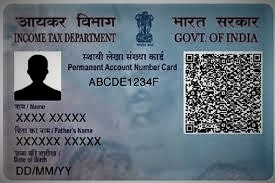When you have not updated your resume for a few months or years, it can be difficult to know where to start from now. For the job you are looking for, you should include what experiences and achievements in your resume. Are you following new resume rules and trends in your resume? And will you create your own page or two pages of your resume?
Let’s help you with something that we have collected all the necessary information for you in one place, which will help you get started again. Read the following appointments and tips below to make sure you start a winner again and who helps you get a job.
1. Telling your story
- Try not to Put Everything on There
It is not that you give detailed information about every work that you have done in the past, in your resume. Showcase only those achievements and capabilities in your resume that accurately define your current work (even if it means that you exclude most of your experience).
- Keep a Master List of All Jobs
Since you’ll need to swap diverse data in and out contingent upon the activity you’re applying to, keep a resume ace rundown on your PC where you keep any data you’ve ever included on a resume: old positions, visual cues custom-made for various applications, unique ventures that exclusive in some cases bode well to incorporate. At that point, when you’re creating each resume, it’s simply an issue of reordering pertinent data together. Think about this as your gloat document.
- Put the Best Stuff “Over the Fold”
In showcasing talk, “over the overlay” alludes to what you see on the front portion of a collapsed daily paper (or, in the computerized age, before you look down on a site), yet essentially it’s your initial introduction of a report. In continue talk, it implies you should ensure your best encounters and achievements are noticeable on the best third of your resume. This best area is the thing that the enlisting director will see first and what will fill in as a snare for somebody to continue perusing. So centre around putting your best, most pertinent encounters first and after that look at these five other advertising traps to get your resume took note.
- Discard the Objective Statement
As indicated by Zhang, the main event when a target area bodes well is the point at which you’re rolling out a gigantic profession improvement and need to clarify from the get-go why your experience doesn’t coordinate with the position you’re applying to. In each other case? Look at whether as a rundown articulation would be ideal for you or simply nix it by and large to spare space and spotlight on making whatever remains of your resume stellar.
- Keep it (Reverse) Chronological
There are bunches of various approaches to compose the data on your resume, yet the great old turn around ordered (where your latest experience is recorded first) is as yet your most solid option. Except if it’s totally vital in your circumstance, skirt the aptitudes based resume enlisting administrators may ponder what you’re stowing away.
The (at least two!) page continue is a fervently discussed theme, however all that really matters is this you need the data here to be compact, and influencing yourself to hold it to one page is a decent method to constrain yourself to do this. In the event that you really have enough applicable and vital experience, preparing, and certifications to exhibit on in excess of one page of your resume, at that point pulls out all the stops. In any case, on the off chance that you can recount a similar story in less space? Do. In case you’re battling, look at these tips for chopping your substance down, or work with a creator to perceive how you can compose your resume to fit more in less space.
- Think about an Online Supplement
Can’t make sense of how to recount your entire story on one page, or need to have the capacity to incorporate some visual cases of your work? Rather than attempting to have your resume cover everything, cover the most imperative points of interest on that record, and afterward incorporate a connection to your own site, where you can plunge more into what makes you the perfect hopeful.
2. Designing
We’ll discuss getting imaginative with a specific end goal to emerge in a moment. Yet, the most essential standard of good resumes organizing and plan? Keep it straightforward. Utilize an essential yet current textual style, similar to Helvetica, Arial, or Century Gothic. Make your resume simple on procuring directors’ eyes by utilizing a text dimension somewhere in the range of 10 and 12 and leaving a sound measure of blank area on the page. You can utilize an alternate textual style or typeface for your name, your resume headers, and the organizations for which you’ve worked, yet keep it basic and keep it steady. Your fundamental spotlight here ought to be on intelligibility for the contracting supervisor. That being stated, you should don’t hesitate to…
Truly need your resume emerge from the ocean of Times New Roman? Indeed, innovative resumes like infographics, recordings, or introductions or resumes with symbols or designs can separate you, however you should utilize them mindfully. In case you’re applying through an ATS, keep to the standard arranging with no fancy odds and ends so the PC can read it adequately. In case you’re applying to a more conventional organization, don’t get excessively insane, however feel free, making it impossible to include some elegant outline components or a little shading to make it pop. Regardless, don’t do it except if you’re willing to invest the energy, innovativeness, and configuration work to make it magnificent.
You don’t have to incorporate your address on your resume any longer (truly!), yet you do need to make a point to incorporate a telephone number and expert email address (not your business locale!) and in addition different spots the employing administrator can discover you on the web, similar to your LinkedIn profile and Twitter handle. (Understood in this is you keep these internet based life profiles reasonable for imminent businesses.)
You’ve heard before that employing administrators don’t invest a ton of energy in every individual resume. So enable them to get however much data as could reasonably be expected, in as meager time as would be prudent. These 12 little arranging changes will have a gigantic effect.
- Get Help From a Professional
Realize that outline aptitudes aren’t your solid suit yet need your resume to look dazzling? There’s no disgrace in getting help, so think about working with an expert resume architect. This is apparently the most vital report of your pursuit of employment, so it merits getting it precisely right!
3. Work Experience
- Keep it Recent, Keep it Relevant
When in doubt, you should just demonstrate the latest 10-15 long periods of your profession history and just incorporate the experience important to the situations to which you are applying. What’s more, make sure to apportion land on your resume as indicated by significance. On the off chance that there’s a decision between including one more school temporary job or broadly expounding on your present part, dependably pick the last mentioned (except if a past activity was more important to the one you’re applying to).
- No Relevant Experience? No Worries!
Try not to freeze in the event that you don’t have any experience that possesses all the necessary qualities. Rather, concentrate your resume on your significant and transferrable abilities alongside any related side or scholarly undertakings, and after that try to combine it with a solid introductory letter explaining to the story of for what reason you’re perfect for the activity.
Regardless of to what extent you’ve been in a vocation or the amount you’ve achieved there, you shouldn’t have more than five or six projectiles in a given segment. Regardless of how great your slugs are, the enrolment specialist simply wouldn’t overcome them. Look at these tips for composing great visual cues.
You might be enticed to toss in huge amounts of industry language so you seem like you hear what you’re saying; in any case you need your resume to be justifiable to the normal individual. Keep in mind that the principal individual who sees your resume may be an enrolment specialist, an aide, or even an abnormal state official—and you need to make sure that it is decipherable, pertinent, and intriguing to every one of them.
Use the same number of certainties, figures, and numbers as you can in your visual cues. What numbers of individuals were affected by your work? By what rate did you surpass your objectives? By measuring your achievements, you truly enable the enlisting director to picture the level of work or obligation you expected to accomplish them. Regardless of whether you don’t really work with numbers, here are a few insider facts to adding more to your resume.
- Make it One Stride Further
Individuals enlist entertainers, so you need to demonstrate that you didn’t simply do stuff, however that you completed stuff! As you take a gander at your visual cues, consider how you can make every announcement one stride further and include what the advantage was to your supervisor or your organization. By doing this, you unmistakably impart what you’re able to do, as well as the immediate advantage the business will get by procuring you. In case you don’t know how to clarify your effect, look at these tips for transforming your obligations into achievements.
- Show—Don’t Tell—Your Soft Skills
Depicting delicate aptitudes on a resume frequently begins to seem like a rundown of insignificant trendy expressions, quick. Be that as it may, being a “solid pioneer” or a “powerful communicator” are critical qualities you need to get over. Consider how you can show these properties in your visual cues without really saying them. Zhang exhibits here how you can demonstrate five distinct characteristics with a similar visual cue—attempt it yourself until the point that you get the outcome you’re going for!
- Try not to Neglect Non-Traditional Work
There’s no law that says you can just put full-time or paid work on your resume. Things being what they are, whether you’ve taken part in a noteworthy volunteer part, worked low maintenance, were enlisted as a brief or contract specialist, outsourced, or blogged? Completely list these things as their own “employments” inside your vocation order.
- Stir Up Your Word Use
On the off chance that each shot in your resume begins with “In charge of,” per users will get exhausted rapidly. Utilize our convenient rundown of better verbs to blend it up!
Utilize catchphrases in your resume: Scan the expected set of responsibilities, see what words are utilized regularly, and ensure you’ve included them in your visual cues. Not exclusively is this a self-watch that you’re focusing on your resume to the activity; it’ll ensure you get saw in candidate following frameworks. Adhered on which words to incorporate? Dump the set of working responsibilities into an apparatus, which will break down and release the most utilized watchwords.
- Maintain a strategic distance from Empty Words
What words shouldn’t you incorporate? Thorough, cooperative person, and diligent employee—among other ambiguous terms that scouts say are incessantly abused. We wager there’s a superior method to depict how amazing you are.
4. Training
- Experience First, Education Second
Except if you’re an ongoing graduate, put your instruction after your experience. Odds are, your last couple of employments are more vital and applicable to you landing the position than where you set off for college.
- Likewise Keep it Reverse Chronological
More often than not, you should set out your instructive foundation by posting the latest or propelled degree first, working backward sequential request. In any case, if more established coursework is more particular to the activity, list that initially to catch the analyst’s eye.
Try not to list your graduation dates. The commentator thinks more about regardless of whether you have the degree than when you earned it.
In the event that you moved on from school with high respects, totally make note of it. While you don’t have to list your GPA, don’t be reluctant to feature that summa cum laude status or the way that you were in the distinctions school at your college.
- Incorporate Continuing or Online Education
Try not to be hesitant to incorporate proceeding with instruction, proficient advancement coursework, or online courses in your training area, particularly on the off chance that it feels somewhat light.
5. Aptitudes, Awards, and Interests
Make certain to include an area that rundowns out all the important aptitudes you have for a position, including tech abilities like HTML and Adobe Creative Suite and any industry-related affirmations. Simply make a point to skip including aptitudes that everybody is relied upon to have, such as utilizing email or Microsoft Word. Doing as such will really influence you to appear to be less mechanically keen.
On the off chance that you have bunches of abilities identified with a position—say, outside dialect, programming, and administration aptitudes—give breaking a shot one of those segments and posting it all alone. Beneath your “Aptitudes” area, include another segment titled “Dialect Skills” or “Programming Skills,” and detail your experience there. Once more—we’re going for skim ability here, people!
- Demonstrate Some Personality
Don’t hesitate to incorporate an “Interests” area on your resume, yet just add those that are pertinent to the activity. It is safe to say that you are a guitar player with your eye on a music organization? Certainly incorporate it. However, including your scrapbooking diversion for a tech work at a human services organization? Try not to try and consider it.
- Be careful with Interests That Could Be Controversial
Possibly you help fund-raise for your congregation on the reg. Or on the other hand maybe you have an affinity for peddling amid political battles. Indeed, these encounters demonstrate a decent measure of hard working attitude—yet they could likewise be oppressed by somebody who can’t help contradicting the reason. Zhang discloses here how to measure the choice of whether to incorporate them or not.
Do incorporate honors and honors you’ve gotten, regardless of whether they’re organization particular honors. Simply state what you earned them for, e.g., “Earned Gold Award for having the organization’s best deals record four quarters consecutively.” What about close to home accomplishments—like running a marathon—that aren’t absolutely applicable however indicate you’re a determined, diligent employee? Zhang shares the correct approaches to incorporate them.
6. Holes and Other Sticky Resume Situations
- Murder the Short-Term Jobs
In the event that you remained at a (non-brief) work for just a matter of months, consider dispensing with it from your resume. As indicated by The New York Times’ vocation mentor, leaving an especially fleeting activity or two off your work history shouldn’t do any harm, insofar as you’re straightforward about your experience if asked in a meeting.
On the off chance that you have holes of a couple of months in your work history, don’t list the standard begin and end dates for each position. Utilize years just (2010-2012), or simply the quantity of years or months you worked at your before positions.
- Clarify Serial Job Hopping
In the event that you’ve work jumped every now and again, incorporate a purpose behind leaving alongside each situation, with a brief clarification like “organization shut,” “cutback because of scaling back,” or “moved to new city.” By tending to the holes, you’ll proactively represent the explanation behind your sporadic activity development and make it less of an issue.
- Clarify a Long Break in Jobs
Returning the workforce after a long rest? This is the ideal open door for a synopsis articulation at the best, laying out your best aptitudes and achievements. At that point, get into your vocation sequence, without delaying to incorporate low maintenance or charitable effort. See more tips from Jenny Foss for murdering it on your rebound continue.
Try not to attempt to inventively fill in holes on your resume. For instance, in the event that you removed time from the workforce to bring up kids, don’t list your child rearing knowledge on your resume, à la “proficiently dealt with the developing heap of clothing” (we’ve seen it). While child rearing is as requesting and extraordinary an occupation as any out there, most corporate chiefs wouldn’t consider this area of your resume important.
5. Completing Touches
- References Available Upon Request
On the off chance that an enlisting administrator is occupied with you, he or she will approach you for references—and will expect that you have them. There’s no compelling reason to address the self-evident (and doing as such may even influence you to look somewhat arrogant!).
- Edit, Proofread, Proofread
It ought to abandon saying, however ensure your resume is without a worry in the world of mistakes. What’s more, don’t depend on spell check and language check alone—request that family or companions investigate it for you (or get a few hints from a proof-reader on the most proficient method to consummate your own particular work).
In the case of messaging your resume, make a point to dependably send a PDF as opposed to a .doc. That route the majority of your cautious arranging won’t unintentionally get botched up when the contracting chief opens it on his or her PC. To ensure it won’t look wonky when you send it off, Google’s head of HR Laszlo Bock proposes, “Take a gander at it in both Google Docs and Word, and after that connect it to an email and open it as a see.”
Prepared to spare your resume and send it off? Spare it as “Jane Smith Resume” rather than “Resume.” It’s one less advance the procuring administrator needs to take.
Cut out some time each quarter or so to pull up your resume and make a few updates. Have you gone up against new obligations? Adapted new abilities? Include them in. At the point when your resume is refreshed all the time, you’re prepared to jump when opportunity presents itself. Also, regardless of whether you’re not working seeking, there are a lot of valid justifications to keep this record fit as a fiddle.









